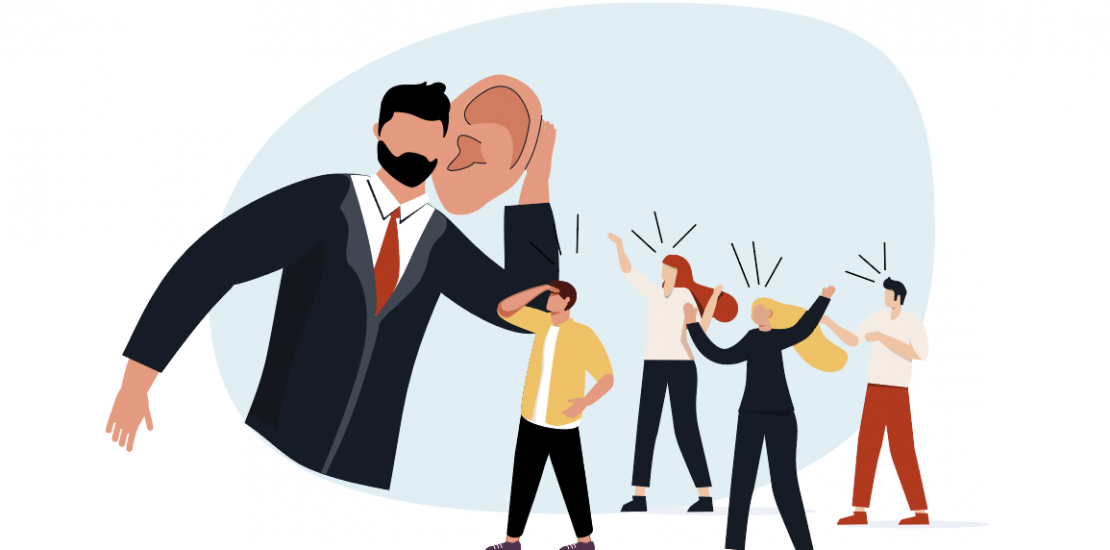- December 14, 2022

Everyone has heard the term at school, probably from quite a strict primary school teacher, “You have two ears and one mouth, you should listen twice as much as you speak.” As cliché as it is, how often have you been in a meeting where the only way you get to speak is to talk over someone else, otherwise you spend the whole session just trying to say ‘your thing’ before the conversation moves on? To overcome this, people seek out methods to be heard, predominantly learning how to speak better so people will listen to them; such as working on presentation skills, trying to be more influential or reciting speeches over and over in front of the mirror. Julian Treasure, a world-renowned expert on sound and communication, has given several TED talks, one of these on speaking and one on listening. The video on speaking has (at the time of writing) had five times more views (52,455,615) than the one on listening (10,978,744). So why are people so much more focused on speaking than listening? And what does this result in both at home and in the workplace?
Rather than obsessing about being heard, wouldn’t such meetings be better if people were more willing to listen and learn how to do that better? After all, we do spend 42% of our waking time listening, 32% talking, 15% reading and 11% writing (Rankin, 1929). Listening is also our primary means of growth and intellectual development. We impart knowledge when we speak; we learn when we listen. So what does this need to be heard imply?
“Hearing is a physical act and listening a mental act. Hearing is our physiological capacity to receive and process sounds. Listening, on the other hand, is to attach meaning to the aural symbols perceived.” (Purdy, 1996)
So, where hearing is a sense, like touch or sight, that we can use passively every day (such as staring into space or brushing past something without realising) listening is processing that signal and attaching meaning to it, like seeing or feeling. You might touch someone as you walk past them on the street vs feeling how soft or rough the sand is whilst walking on a beach and are very present when doing so (especially if it’s pebbles). This is the difference between touching and feeling and is the brain processing the sense and having a response (that being pain if you’re walking on pebbles).
How often, in the current era of distractions with smartphones and social media, do you see people scrolling whilst having a ‘conversation’ and when they are challenged “You didn’t hear anything I just said” the individual can repeat back exactly what was said. Yes, they heard the words and were able to repeat them but they weren’t listening, hadn’t mentally processed them or responded appropriately.
How many of these examples have you been on the receiving end? How many times have you been speaking to someone whilst they watch TV and pretend to listen to you, or you’re trying to have a serious conversation and they keep looking at their phone as notifications pop up, as if a better offer might raise its head?
With that in mind, next time you are in a situation where your mind is wandering in a meeting and you’re struggling to pay attention, scrolling whilst talking to a friend or relative, or thinking of what to say next whilst someone else is talking, I challenge you to sit up, think of the message trying to be conveyed and ask a question or two to ensure it’s clear in your head. Then carry out the action that was discussed in the conversation or meeting with full focus and notice how your relationships improve, your communication becomes second to none and people come to you because they know you’ll actually listen to what they have to say.
